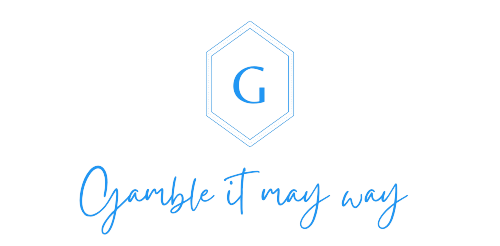
Table of Contents
ToggleNutrients Essential For Healthy Hair
While there are no set rules as to what you should eat to grow and maintain healthy hair, you should eat foods that provide essential nutrients for your hair. Protein is one of the most important nutrients for hair growth, and eggs are an excellent source of biotin. You can also prepare scrambled eggs with avocado oil to increase their biotin content. Papaya is an excellent source of vitamin C, which helps protect collagen. One cup of papaya has 86.5 mg of vitamin C, which is essential for hair growth. It is also rich in fiber and carotenoids, which help promote scalp health.
Fatty fish like salmon are high in vitamin A, which helps to build sebum. Moreover, these foods are versatile. Salmon can be used in fish tacos, or you can cook it in the oven and serve it over spiced lentils. Moreover, cruciferous vegetables such as spinach and kale are rich in biotin. Folate is a vitamin B that promotes cell division. A low-folate level can lead to weak, brittle hair.
Legumes and other legumes are rich in minerals and vitamins that are necessary for hair growth. They contain biotin, which strengthens the keratin structure in the hair. Biotin improves hair elasticity and makes it stronger, thicker, and less prone to breakage. And they’re rich in protein, too! For an added boost, try spreading natural nut butter on your toast in the morning.
Take a look at this list of essential nutrients to achieve the healthy hair you want!
1. Protein
To prevent hair loss and keep your tresses healthy, eat foods rich in protein. Nuts are also rich in vitamin E and B vitamins. You can also find omega-6 fats in nuts such as walnuts and linseed. You can even try spreading nut butter on your morning toast! Getting the right balance of protein, fatty acids, and vitamins in your diet will ensure that your tresses stay shiny and strong.
2. Zinc
Vitamins C and E are important for healthy hair, but zinc is the wonder mineral that makes the difference. The latter boosts the immune system, prevents viral infections, and helps grow hair. The benefits of zinc are numerous, but here are just a few. Ensure that you incorporate enough zinc into your diet for healthy hair. It’s not difficult to get enough zinc in your diet, and you’ll be amazed at the results!
3. Vitamin A
The first thing you should know about Vitamin A Nutrients Essential for a Healthy Head of Hair is that the human body cannot produce vitamin A from beta-carotene, a naturally occurring chemical. Beta-carotene is converted into retinol before it can be used by the body. It is essential to your body because it strengthens the immune system and protects against foreign invaders. Moreover, Vitamin A is necessary for producing sebaceous glands, which secrete a natural conditioner that keeps your hair healthy.
4. Vitamin C
One way to grow healthy hair is to incorporate a vitamin C-rich diet into your diet. Vitamin C helps your hair absorb iron. It is also used to make collagen, an important component of the hair structure. Some examples of food sources that contain vitamin C include bell peppers, broccoli, cauliflower, kale, Brussels sprouts, oranges, strawberries, and parsley. All of these foods will help strengthen your hair and scalp.
5. Iron
It is important to supplement your diet with adequate amounts of iron to promote healthy hair growth. The nutrient is found in food, especially meat and dairy products. In addition, iron is found in plant foods such as spinach. However, it is not as easily absorbed by the body as heme iron. Vitamin C can enhance the absorption of non-heme iron. However, tannins, phytates, and polyphenols can inhibit its absorption.
Which Fruit Is Best For Hair?
You may be wondering which fruit is best for hair. Apples are a good choice for hair health, and you can even use apple juice as shampoo. Apple juice is excellent for hair, as it strengthens hair and prevents dandruff. Apple juice is also a good way to treat dandruff and balance the pH level of your scalp. Bananas are another great fruit for hair health.
How Do I Nourish My Hair?
- One of the best ways to get healthy and vibrant hair is to use nourishing oil.
- Olive oil or pure coconut oil are great choices, and rosemary oil is good for very dry hair.
- Essential oils can also be applied to the hair and diluted because they have antibacterial properties.
- You can also try herbal oils such as Brahmi, arnica, or hibiscus.
- Another way to get nutrients into your hair is to massage oils into your scalp on a regular basis.
- Using warm oils is great for blood circulation, and wearing a shower cap can help open your pores.
How Can I Stop My Hair Loss?
While hair loss is an inevitable part of aging, there are ways to reduce the risk.
- A good way to stop hair loss is to start a diet high in protein. A diet high in protein promotes hair growth. If you are vegan or vegetarian, you might want to increase your protein intake. Eggs and Greek yogurt are good sources of protein.
- You may also want to see your doctor, who can check your diet to find out if you are deficient in vitamins. Vitamins A, B, D, and E are known to promote hair growth.
What Should I Do Daily For Hair Growth?
- It’s difficult to grow new hair if your scalp is unhealthy.
- Regular hair washing will help break down build-up and promote growth.
- Using too many hair products daily can actually hinder the growth process.
- Be sure to record how many products you apply to your hair each day.
- Keep a diary to record the number of hair products you use daily.
- If you find that you’re using too many products on a daily basis, consider cutting them out for a few days.
Also, Read About- KETO DIET: HOW CAN A KETO DIET AFFECT OUR BODY IN DIFFERENT WAY
Conclusion
When it comes to maintaining your tresses, a healthy diet is key. Hair is made of proteins, including keratin, which is the building block of hair. A lack of protein will slow down the development of this building block, resulting in weaker and brittle strands. Eating a varied diet of lean meats, low-fat dairy products, legumes, and whole grains are excellent sources of these nutrients.
About The Author
Sarah Williams
Sarah Williams is a seasoned editor at GambleItMayWay.com, where she brings her passion for writing and keen editorial skills to the forefront. Her expertise spans across various domains, with key areas of interest encompassing lifestyle, business, technology, and home decor.

